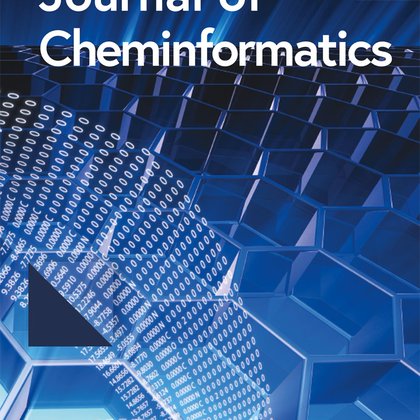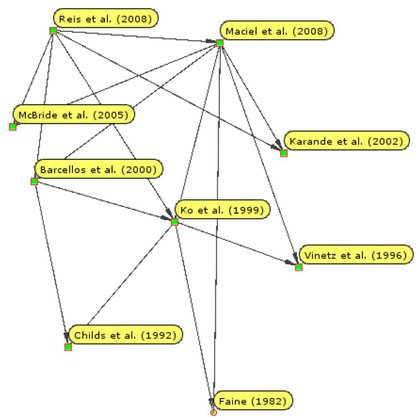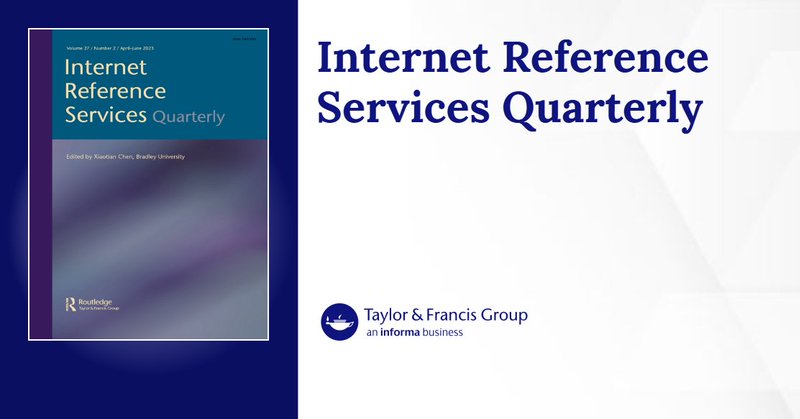
Alejandro Montenegro
@aemonten
Followers
9K
Following
33K
Media
4K
Statuses
46K
Molecular Biologist, PhD丨Chief Editor CSH Protocols & Head of Integrity in Publishing — @CSHL丨Scientific Chair @molbiosystems丨Central Dogma Police丨Chilean 🇨🇱
New York, USA
Joined May 2009
🚨IT'S HAPPENING!🚨 Register now and join us in beautiful southern Chile in September for a new edition of the Molecular Biosystems Conference! @molbiosystems
🚨 Registration for the Molecular Biosystems Conference is now OPEN! Join us to discuss cutting-edge research in gene regulation & functional genomics. 📅 Sep 29-Oct 3, 2025 📍 Puerto Varas, Chile 🔗 Register here: https://t.co/VyNn7FjUKL Register now—space is limited!
1
5
15
🙏Thanks to the team at NBT @NatureBiotech especially Barbara Cheifet, our editor, who helped us develop this story and get good, constructive feedback which helped improve the story and the tools! [13/n] https://t.co/cxGxZFd31R
1
0
1
And before you even think of going there, the metric was created and proposed by academics https://t.co/7EcSGRur8t
1
0
2
A recent study in a journal that tried to implement it found it to be "burdensome on authors and editors" and of unclear value, but the authors do hope that such ontology is used more, as they see the value in the semantic representation of citations https://t.co/xMhzAUE6vp
jcheminf.biomedcentral.com
1
0
0
Many years ago, a citation "ontology" was proposed, motivated by the desire to allow authors to formally specify the intent of a given citation. CiTO, the Citation Typing Ontology https://t.co/9zQPf6D1mM
link.springer.com
CiTO, the Citation Typing Ontology, is an ontology for describing the nature of reference citations in scientific research articles and other scholarly works, both to other such publications and also...
One obvious thing we **should** have done when moving to electronic publication was switch to rich citations that point directly to what you are citing in a paper - a data point, a figure, a method, a conclusion - and explain why you are citing it. Another thing publishers
1
0
1
It's not about the reviewers you might get, but about the editor you do get. Editors make decisions.
Our lab prides itself on knowing how well our papers fit into specific journals. We never submit a paper to a journal that we think is out of reach in terms of the reviews we will get. I am amazed at how well AI aligns with our internal adjudication. We will use for all pre-subs.
0
0
0
@SfNtweets @PLOSBiology I should also call out that we received excellent guidance and feedback from our editor at @PLOSBiology , Joanna Clarke, and reviewers: Chris Hartgerink, Katie Corker ( @katiecorker) , & Leslie Vosshall (@leslievosshall ).
0
0
1
Instead of listing every possible thing the latest AI/LLM CAN do, the question is, what are the sort of things in academia and scientific publishing that we WANT HUMANS to do? And are we funding/rewarding/prioritizing that?
0
0
1
@aemonten We leverage (human cell) display at scales equal to yeast display! So it's not so much a complementary approach, as having much more control over the library that goes onto the phage. It's what you can do when you bring down the cost of synthesizing designs from a model 1T fold
0
1
2
Good old phage display, I'd say.
Here's the problem: You need to design antibodies for a target no one has drugged before. You can't use AlphaFold. Your binding predictors don't work. There's no working starting point. What you do have: patient samples and healthy controls. Can you build a tool that delivers?
1
0
1
Sigh.
AI can solve [some] problems. But AI can't decide what problem is worth solving. Glad @neubadah is challenging the premise. The problem isn't how can AI help us format papers. The problem is why are we spending hours formatting papers to begin with? Love the joke. I chuckled.
0
0
0
🚀 Another edition of the Molecular Biosystems Conference is in the books! #mbiosys25 Thank you to our amazing speakers, participants, & sponsors, including @ICGEB & @UNUBIOLAC, for making Puerto Varas a hub of exciting discussions on gene regulation and functional genomics. 🔽
1
6
16
📷Cover image info: https://t.co/a9xIVa4xNX 📒Full issue:
0
0
0
A new issue of CSH Protocols is out! The cover image highlights the work by Wallace et al.,who provide an overview of recent progress in the field of maize microbiome research. ⬇️Links below
1
0
1
A new edition of the Molecular Biosystems Conference is just around the corner! #mbiosys25 What are you most looking forward to? Let us know below!
0
2
1
Requiring that someone knows your email address just to be able to send you a Connect request on LinkedIn, is a bit too much IMO, and it even defies the purpose a bit
0
0
1
📷Cover image info: https://t.co/cbCy5Nx9Sl 📒Full issue:
0
0
0
A new issue of CSH Protocols is out! The cover image highlights the work by Marcon, @HochholdingerF, et al,who provide a detailed protocol for Mu-Seq, an approach to identify and map mutations in Mu-tagged insertional mutagenesis populations in maize. ⬇️Links below
1
1
4
Many legitimate publishers send such emails, & I've done it as well. The thing is that this has now been exploited by predatory publishers/conferences, but that does not mean that just reaching out based on a preprint is, by itself, predatory https://t.co/Eap0eD7AwZ
tandfonline.com
Spam, unwanted, or unsolicited emails negatively affect academics in the form of potentially harmful content or links, while deceptive spam can waste scientists’ time and resources. In this report,...
0
0
1











